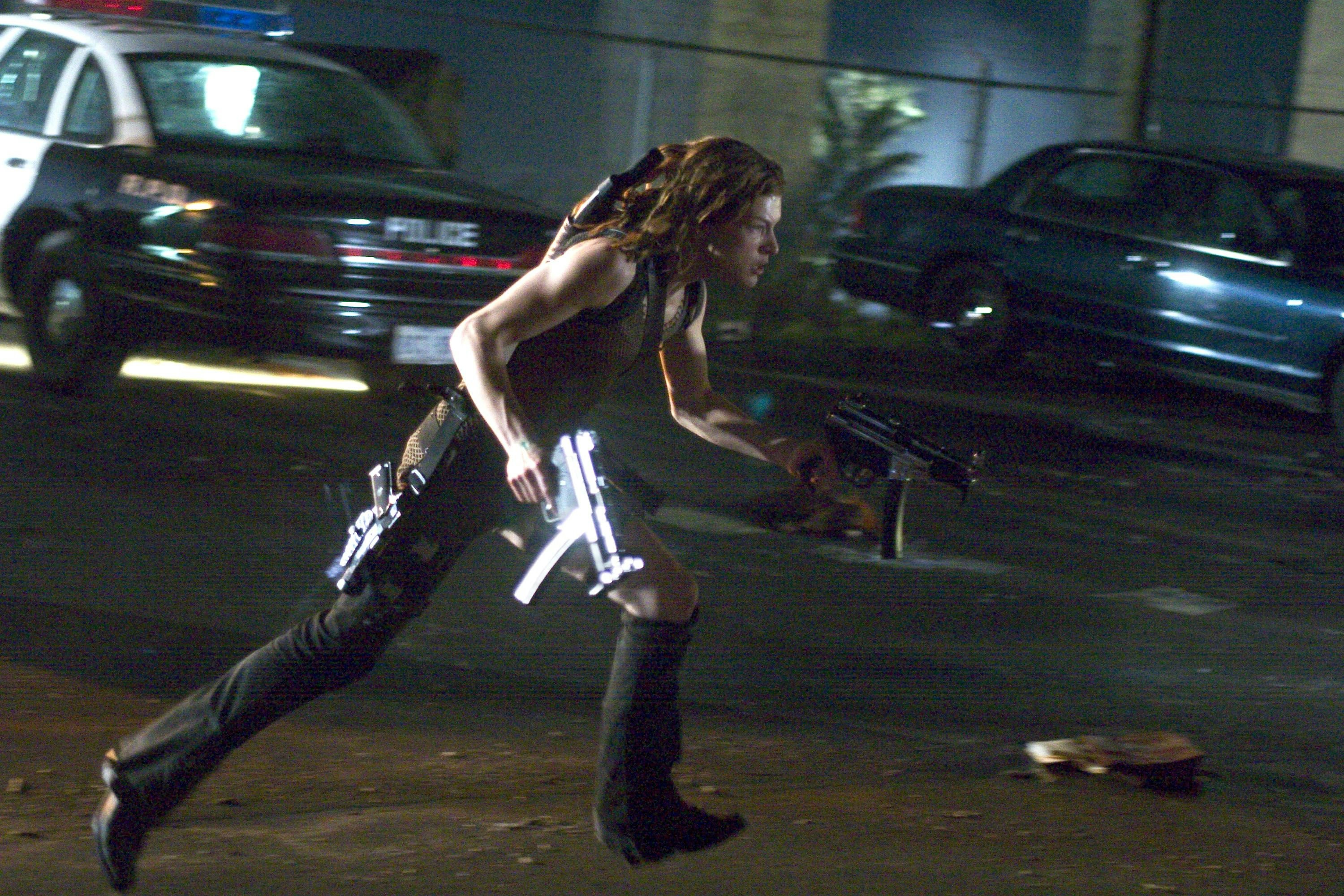
Resident Evil: Apocalypse might have been destined for disaster from the very beginning.
“Unfortunately, it was a tough shoot,” director Alexander Witt tells Inverse. “I started with a DP that the producers wanted. And then after the first couple of days, I said, ‘Look this is not going to work, it’s not looking good. He doesn't know what he's doing.”
A sequel to 2002’s Resident Evil, Apocalypse starred only one actor from the first film — Milla Jovovich as Alice — while original director Paul W.S. Anderson had to step away because of his commitments to Alien vs. Predator. Only Anderson’s script remained, but in stepped cinematographer and second unit director Alexander Witt, who made his feature directorial debut with the 2004 zombie-action flick.
Witt, who at that point was best known for his collaborations with director Ridley Scott going back to Gladiator, was left in an impossible position. He found himself torn between what the studio wanted, what was in Anderson’s script, and his own impulses as a seasoned filmmaker.
“There were a lot of problems,” Witt says, “especially because there was a relationship between [Milla Jovovich] and Anderson. But there was nothing we could have done differently.”
Picking up right after the events of Resident Evil, the film follows Alice (Jovovich) as she makes her way to the nearby Raccoon City where the zombie outbreak has decimated pretty much everything. The movie was met with poor reviews at the time, with critics disparaging it for being “generic” and tiresome.” But despite the downright savage criticism of the movie, Apocalypse would not be the end of the movie franchise. In fact, it would make more at the box office than the original, spawning four more sequels led by Jovovich.
To celebrate the 10th anniversary of the movie, Inverse caught up with director Alexander Witt to get his insight into Resident Evil: Apocalyse’s unlikely journey — and how the true hero of this movie is hiding in plain sight.
The Road to Apocalypse

After the success of the first Resident Evil film in 2002, Paul W.S. Anderson started writing a script for Resident Evil: Apocalypse right away, as the sequel to the first movie was greenlit nearly immediately after the original film’s release.
Anderson had been inspired by various post-apocalyptic movies like Escape From New York (1981) and The Omega Man (1971), which is why Apocalypse has more abandoned city vibes than its predecessor. This film also drew on lore from the video games slightly more than the first film, specifically the story for the 1999 video game Resident Evil 3: Nemesis.
Departing slightly from the straight-up horror vibe of the previous film, Apocalypse has more of an action-adventure survival feel to it. If Resident Evil was Alien, then Apocalypse is Aliens, complete with Alice and her comrades joined by a young girl in the form of Angela Ashford (Sophie Vavasseur). But in general, Anderson’s story structure is much more overstuffed than the previous film.
Luckily, Witt’s strongest ally would help steer the troubled production across the finish line — and prove that she was the secret sauce to the whole franchise.
Milla Jovovich saves the day

Witt credits Milla Jovovich’s commitment to her character as saving Resident Evil: Apocalypse from falling into complete chaos.
“There were many changes that I wanted to do. Sometimes Milla was in saying, Yes, let’s do that,” he the director says. “Milla had a lot to say because she’d done the first one. The producers pushed me a lot. But they listened to her.”
Jovovich’s passion for the character even led to her butting heads with Witt at a few points in the production, with Witt describing a three-way game of push-and-pull between different ideas about what the film was supposed to become.
“I can't remember specific changes,” he admits. “But I know that there was one change that Anderson wanted to do, or the producers also, and when I told Milla, she almost killed me because she liked that scene so much, and Anderson wanted to get rid of it. There were a lot of political things going on.”

Ultimately the story of Alice is still the heart of Resident Evil: Apocalypse — and the rest of the film franchise that followed.
“Milla was wonderful,” Witt says. “She knew her character very well. She understood what drove her. She fought to make the film true to her character. And now, for all the problems making the movie, I have to say, I feel pretty good about it. We made a good movie.”







